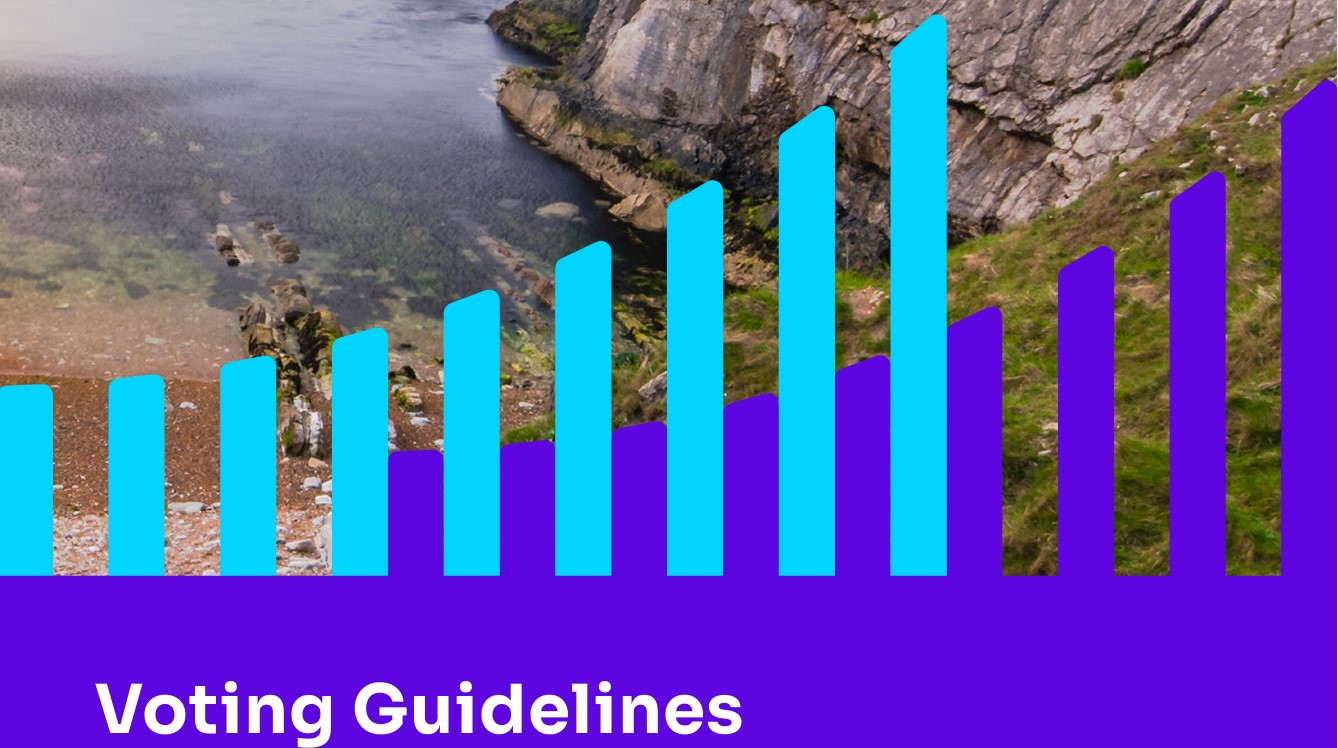Voting Guidelines updated

An updated version of the Brunel Voting Guidelines has been published and shared with our asset managers.
As part of our annual review of our Voting Guidelines, we reflect on the previous proxy voting season, the broader RI landscape and engagement progress on relevant topics. With this in mind, we assess how our voting guidelines need to be refreshed.
The main changes in our updated guidelines this year include:
Climate change
- Explicitly outlined escalation where our baseline expectations of CA100+ companies are not met. In 2024, CA100+ companies within our active segregated funds will face a vote against the chair or relevant director where they continue to fail to set a decarbonisation strategy including ambition and meaningful targets or fail to provide adequate climate disclosure such as TCFD reporting. We will also consider voting against company annual accounts and reports, re-appointment of the auditor and chair of the audit committee where companies have not met our expectations on climate accounting and audit assessments based on CA100+ benchmark.
- We will selectively engage and vote against relevant company directors that are in the broader TPI universe if they are a material contributor to our financed emissions, have not at least reached level 3 of the TPI framework, their strategy is not aligned to net zero ambitions, or they are not progressing against any of the alignment indicators. Companies in the oil and gas, coal mining, electric utilities, diversified mining or automotive sectors, and/or European, UK, Australian or New Zealand companies scoring below Level 4 will also be flagged.
- We will intensify dialogues and set tighter expectations on disclosures relating to climate accounting, lobbying and capex and exercise votes against directors from 2025 onwards.
Biodiversity
- We have noted our support for NA100 initiative and its objectives and outlined our commitment to meet the requirements of TNFD.
- Set a minimum expectation that companies acknowledge the relevance of biodiversity for business, set and disclose ambitions and ensure appropriate senior level oversight. We will engage with companies in high-risk sectors and selectively exercise votes against in 2024. Escalation will be extended to a broader set of companies in 2025.
Banks
- Introduced a new principle in relation to banks outlining need for alignment of their approach to facilitated and financed emissions with their new zero commitments. We have also highlighted the need for transparency on the effectiveness of their engagement with clients on climate transition and introduction of explicit criteria for withdrawal of financing to misaligned activities. We will consider supporting shareholder resolutions that encourage action on these fronts.
Tax
- Made explicit our intention to support shareholder resolutions that aim to improve tax transparency in line with the GRI tax standard 207. We have also signalled our intention to escalate on this topic in 2025.
Artificial Intelligence
- Set out our minimum expectations and indicated support for shareholder resolutions that require companies to enhance disclosure or take specific actions to address AI related risks.
Our updated guidelines are available in our library.
